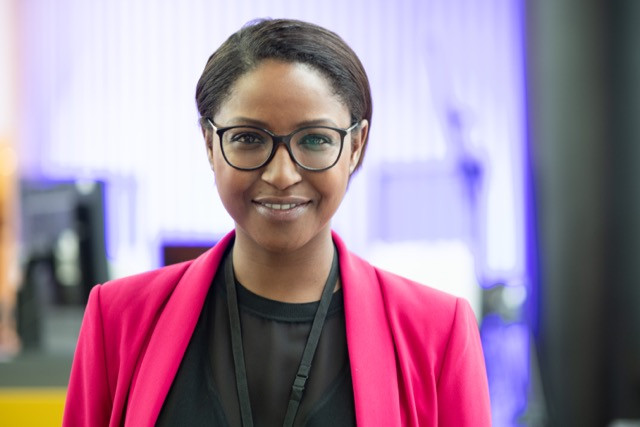Nicolas Léonard: How did you feel when you saw the footage of George Floyd?
Monica Semedo: I was shocked and very touched. We know that police violence in the USA exists, but at the same time we hope that it will improve, that we will never see it again. We are also always afraid that this will happen to us. The police are there to defend everyone, but there have been recent cases of spillovers in France, Belgium, the Netherlands…
Will discrimination still be a reality for many years in Europe?
We must never look away from what is happening, and, yes, some discrimination is a reality in Europe. But Europe is built on values--equality, freedom, security…--that must be promoted. That is why, together with two other members [of the European Parliament], I wrote a letter to Ursula von der Leyen asking her to make a clear statement on behalf of the [European] Commission against racism. 118 other MEPs signed the letter.
Europe feels uncomfortable with the subject…
One thing is frightening: the anti-discrimination directive has been stalled for 11 years. Proposed in 2008 by the commission, it was adopted in 2009 by the European Parliament. Since then, it has been blocked in the European Council. I think it is time to find a way to put pressure on member states to finally move forward. This directive has to come out of the drawer it is in, and the president of the commission wants that too. I appreciated that attitude. The time has come to move forward.
But it won’t be easy…
Alas, we need a unanimous vote. The directive seeks to prohibit discrimination based on age, disability, religion or sexual beliefs and orientations. We know that some countries do not agree with that.
Have you experienced racism and discrimination yourself?
Yes, and I have precise memories of it. I was a teenager, especially when I was asked about myself in a park by parents. At the table too, with the family of a friend, comments were made about foreigners, then I was told that I was not concerned, that I was an exception. Generalising, and then telling you that you are an exception, I find that scandalous. As a journalist too, I had to endure longer airport checks, while my cameraman passed through security without any problem, and we were travelling together.
Have you ever been scared?
I always advocate dialogue…But, yes, I was once very scared. It was during a cover band concert in the Moselle. I felt that things were not normal. I was surrounded by about 40 men. I wanted to talk, but one of them showed me a racist tattoo on his arm…That was no longer possible. With my friend, we managed to escape. But I did fear for my life.
Do you feel comfortable in Luxembourg?
Yes! This is my country. Diversity is a reality, everyone can have their chance. I also believe a lot in education, and I have had the opportunity to cross paths with a great people throughout my career. In particular, my very committed third year primary school teacher, who had a class with two thirds of children from migrant parents. I was eight years old, and she had us write a text about ourselves. I started with ‘I’m Monica Semedo. I have a pretty black skin… ’ I also wrote that my teacher had laughed when I said that we were all Luxembourgers. But she had noted below: ‘We are all human beings.’ I say thank you, because it is thanks to her that I am now living the life I live.
Are you personally committed to encouraging more tolerance?
Anyone who knows me can attest to my commitment to greater integration, tolerance, diversity…I defend values, I fight for them. If I can serve as an example, so much the better. Notably my engagement in politics, which is a way to get things moving. In any case, the time has come to act, and the time to be silent is over. I say to young people: defend your values!
This interview was first published in French by Paperjam and has been translated by Delano
